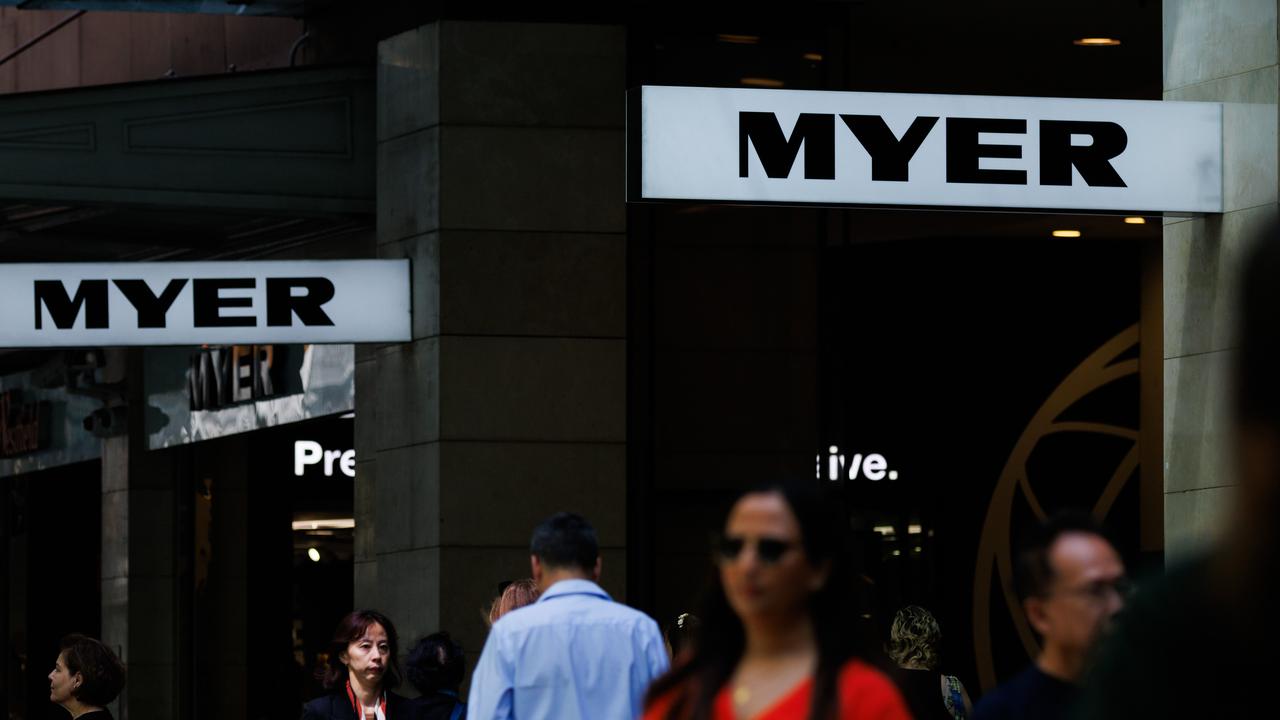Bragg warns APRA rules to face Senate scrutiny
A looming inquiry into home lending spearheaded by Liberal Senator Andrew Bragg could look to change APRA’s mandate ‘to maximise first homeownership’.

Business
Don't miss out on the headlines from Business. Followed categories will be added to My News.
The capacity for borrowers to pay their mortgage at rates higher than current levels will be a core focus for a looming inquiry into home lending, spearheaded by Liberal Senator Andrew Bragg, who warns current regulations may have overshot the mark.
Senator Bragg said the Senate Inquiry into financial regulatory framework and home ownership would look to hold its first public hearings in coming weeks, ahead of a December reporting date, with recommendations expected to form part of the Coalition’s election pitch to young Australians at the imminent election.
Mr Bragg told The Australian he wanted to see a stabilisation of house prices along with efforts to make it easier for people to buy their first home.
“We want to see a closer nexus between the average income and the average house price,” he said.
“If you can’t get a mortgage, you can’t get a first home.”
Senator Bragg said the Albanese government had “spent no time looking at these issues”, warning the Australian Prudential Regulation Authority, the key regulator for the banking sector, had been allowed to set its own rules for borrowers.

APRA, which regulates the banks, requires banks to assess borrowers for home loans at 3 per cent higher than the current rates in a bid to ensure homebuyers can continue to meet their repayments in the event interest rates surge.
APRA bumped up this test from 2.5 per cent to 3 per cent in October 2021 and held the test steady in July, with chair John Lonsdale warning credit growth was moderating from pandemic highs.
Mr Lonsdale, who took on the running of APRA in October 2022, said lending standards from the banks “remain sound” noting banks could “make exceptions to their serviceability policy when it is prudent to do so”.
Some banks have assessed borrowers seeking to refinance at lower serviceability tests, with some pandemic-era mortgage holders no longer qualifying for the tougher tests given the rapid increase in interest rates since May 2021.
Senator Bragg said the Senate inquiry, which is set to hold two hearings by the end of October, was squarely focused on lending, noting APRA had shown it was “extremely risk averse”.
“Prudential stability hasn’t been balanced against any other competing factor,” he said.
“First home ownership is not something the regulator thinks about when it makes its prudential standards.”
Senator Bragg said the inquiry may look at changing APRA’s mandate “to maximise first homeownership”.
“We’re in a housing crisis, anyone would accept that,” he said.
“If the frankly quite obscure prudential regulator is making rules which are rubbing out the Australian dream, that is something the parliament needs to look at.”

APRA has previously stepped in to limit lending to investors amid concern of an overheating housing market crowding out other homebuyers, slapping banks with a 10 per cent benchmark in 2014 in a move which lasted through to mid-2018.
But Senator Bragg said he did not support a repeat move, noting there were “other ways you could tilt the scales in favour of first home buyers”.
A spokesman for Treasurer Jim Chalmers said the government had “our own ambitious housing policies”.
“If the Liberals were serious about housing, they’d support them not oppose them,” he said.
The Senate inquiry has proven of interest to the financial sector, attracting almost 60 submissions since it was called on August 14.
APRA, in its submission, said it regularly reviewed serviceability tests, noting it considered a surge in borrowers shifting to the unregulated non-bank lender space a sign regulations were too tough.
“Non-bank lenders continue to account for a small share of housing lending in Australia, at less than 5 per cent,” APRA noted.
Across their submissions the banks and The Australian Banking Association noted supply side factors were a major issue for first home buyers, with the ABA warning current new housing numbers were “the lowest annual number of completion in the past ten years”
The ABA said it was concerned APRA’s capital rules made it more burdensome for banks to lend to housing developers “a burden that is not applied to private capital more broadly”.
The Customer Owned Banking Association, representing Australia’s mutuals, credit unions and building societies, said it backed reducing the serviceability buffer.
Originally published as Bragg warns APRA rules to face Senate scrutiny





